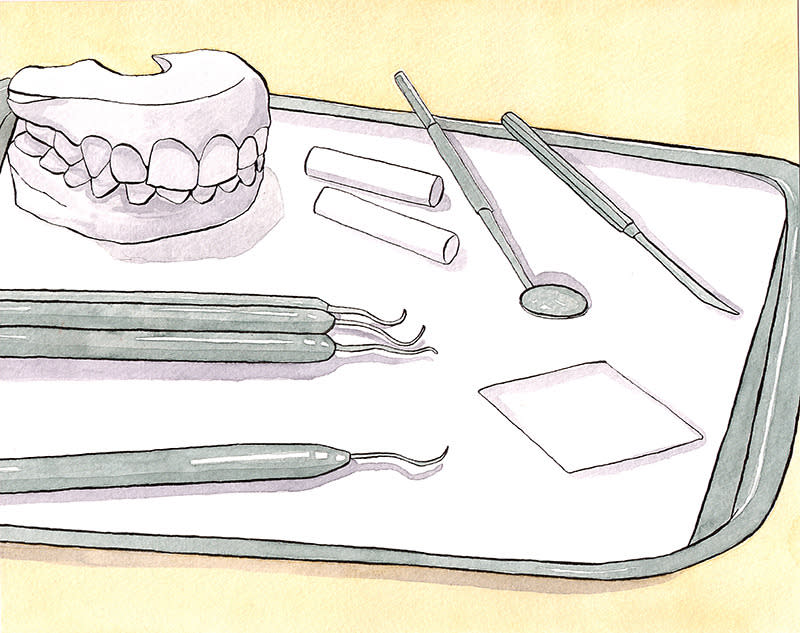This is How You Get Over Your Fear of Going to the Dentist

Feel completely freaked out every time you need to visit the dentist? Scientists say they have a solution. (Getty Images)
Researchers from King’s College London have discovered that cognitive behavioral therapy (a form of psychotherapy that works to change a person’s unhelpful thinking and behavior) can help people suffering from dental phobia.
For their work, scientists followed 130 dental patients who are afraid of going to the dentist. Seventy-five percent of study participants had dental phobia, also known as odontophobia, while the rest had a specific fear of some aspect of visiting the dentist (fear of dental injections and the dental drill were the most common issues). Nearly all had issues with their teeth as a result.
After undergoing cognitive behavioral therapy, 79 percent of study participants went on to have dental treatment without the need for sedation to calm their anxiety. The average number of therapy sessions required before a patient could visit the dentist without needing to be sedated was five. The results were published in the British Dental Journal
Study co-author Tim Newton, PhD, a professor of psychology as applied to dentistry at King’s College London Dental Institute, tells Yahoo Health that he was “delighted” that he and his fellow researchers were able to help so many people overcome their fear.
Related: Heart Disease, Brittle Bones, And Other Scary Conditions Your Dentist Can Spot
“The group of people we saw had a long history of dental phobia and we were amazed that they managed to overcome their fear to the extent of having treatment without drugs,” he says.
The problem with dental phobia (besides the fear itself) is that people often wait to visit the dentist and, as a result, often need more serious treatment when they do manage to come, Newton says. That creates a vicious cycle that only exacerbates the fear.
While it sounds surprising that a person’s crippling fear of the dentist can be cured with therapy, Simon Rego, PsyD, director of psychology training at Montefiore Medical Center/Albert Einstein College of Medicine tells Yahoo Health that he isn’t shocked.
“We have clear and convincing evidence from several decades of research that shows cognitive behavioral therapy is the expert choice for phobias, including dental phobias,” he says.
Why is it so effective? With phobias, people tend to manage their anxiety by avoiding situations or triggers that cause them to feel anxious. “They get used to coping through avoidance but not by coping with the triggers,” Rego explains. Cognitive behavioral therapy encourages them to confront the fears and learn to overcome them by realizing that they weren’t rational to begin with.
Related: When Signs of “Aging” Mean You Have Diabetes
Rego says it may be helpful for a person with a more severe form of dental phobia to visit a psychologist who practices cognitive behavioral therapy, undergo a few sessions, and then take it from there.
But if your phobia isn’t crippling, Newton has a few suggestions for things you can do at home. The first is to sit down and write notes for your dentist, detailing everything you can think of that would make you feel more comfortable during your visit. That might include a signal that means you want the dentist to stop, whether you’d like to have frequent breaks during treatment, how much you want to know about the treatment in advance, and whether you want to listen to your own music during the treatment.
“Use this as a way of starting a conversation about your fear with your dentist,” Newton says. “They may not be able to do everything you would like, but many of the things you want are easy to fit into the appointment.”
He also recommends avoiding avoidance of the dental office at all costs. “Try making some small steps like going to see the dental practice every day, stand outside or pop in to the waiting room,” Newton says. “Over time you will find your anxiety declines.”
Read This Next: 15 Things That Dentists Never Ever Do
Let’s keep in touch! Follow Yahoo Health on Facebook, Twitter, Instagram, and Pinterest.

